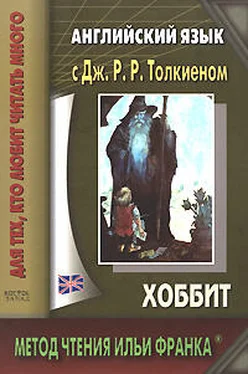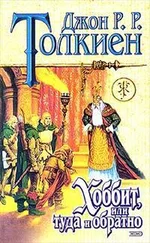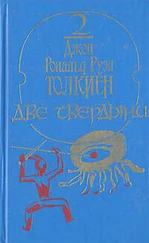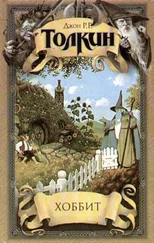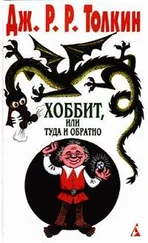reputation [ˌrepjʋˈteɪʃ (ǝ) n] honour [ˈɔnǝ] neighbourhood [ˈneɪbǝhʋd] queer [kwɪǝ] nephew [ɪkˈstrævǝɡǝnt] [ˈnef| ju:, ˈnev-] encourage [ɪnˈkʌrɪdʒ] extravagant
Indeed Bilbo found he had lost more than spoons — he had lost his reputation. It is true that for ever after he remained an elf-friend, and had the honour of dwarves, wizards, and all such folk as ever passed that way; but he was no longer quite respectable. He was in fact held by all the hobbits of the neighbourhood to be ‘queer’ — except by his nephews and nieces on the Took side, but even they were not encouraged in their friendship by their elders. I am sorry to say he did not mind. He was quite content; and the sound of the kettle on his hearth was ever after more musical than it had been even in the quiet days before the Unexpected Party. His sword he hung over the mantelpiece. His coat of mail was arranged on a stand in the hall (until he lent it to a Museum). His gold and silver was largely spent in presents, both useful and extravagant — which to a certain extent accounts for the affection of his nephews and his nieces. His magic ring he kept a great secret, for he chiefly used it when unpleasant callers came. He took to writing poetry and visiting the elves; and though many shook their heads and touched their foreheads and said “Poor old Baggins!” and though few believed any of his tales, he remained very happy to the end of his days, and those were extraordinarily long.
One autumn evening some years afterwards (одним осенним вечером, несколько лет спустя) Bilbo was sitting in his study (Бильбо сидел в своем кабинете; study — изучение; рабочий кабинет /в квартире ученого, писателя/ ) writing his memoirs (пиша свои мемуары) — he thought of calling them (он подумывал назвать их) “There and Back Again, a Hobbit’s Holiday” ("Туда и Снова Обратно, или Каникулы Хоббита") — when there was a ring at the door (когда у двери раздался звонок). It was Gandalf and a dwarf (это были Гэндальф и гном); and the dwarf was actually Balin (а гном был, на самом-то деле, Балин).
“Come in (входите)! Come in!” said Bilbo, and soon they were settled in chairs by the fire (и вскоре все они устроились: «были усажены» в креслах у огня; to settle — устраивать (ся), усаживать (ся) ). If Balin noticed that Mr. Baggins’ waistcoat was more extensive (если Балин заметил, что жилет мистера Бэггинса стал: «был» более просторный; extensive — обширный, просторный ) (and had real gold buttons (и у него были настоящие золотые пуговицы)), Bilbo also noticed (то и Бильбо тоже заметил) that Balin’s beard was several inches longer (что борода у Балина была на несколько дюймов длиннее), and his jewelled belt (и что его пояс, украшенный драгоценными каменьями; jewel — драгоценный камень, ювелирная вещь; to jewel — украшать драгоценными камнями ) was of great magnificence (был необычайно великолепен; magnificence — великолепие, пышность ).
They fell to talking of their times together (они принялись говорить о тех временах, проведенных вместе; to fall to (doing) smth. — браться, начинать делать что-либо ), of course (конечно же), and Bilbo asked how things were going (и Бильбо спросил, как идут дела) in the lands of the Mountain (в землях у Горы). It seemed they were going very well (оказалось, что дела шли очень хорошо). Bard had rebuilt the town in Dale (Бард отстроил заново город Дейл) and men had gathered to him (и люди собрались к нему) from the Lake and from South and West (и с Озера, и с Юга, и Запада), and all the valley had become tilled again and rich (и вся долина снова стала возделанной и богатой; to till — возделывать, обрабатывать, пахать землю ), and the desolation was now filled (и /земли/ запустения теперь были заполнены) with birds and blossoms in spring (птицами и цветами весной) and fruit and feasting in autumn (плодами и празднествами осенью). And Lake-town was refounded (да и Город-на-Озере был заново восстановлен; to refound — заново основывать, восстанавливать ) and was more prosperous than ever (и процветал больше: «и был более процветающим» чем когда-либо; prosperous—процветающий, преуспевающий ), and much wealth went up and down the Running River (и многие богатства перевозились вверх и вниз по Быстротечной Реке; wealth — богатство, обилие; собир. материальные ценности, богатства ); and there was friendship in those parts (и в тех краях царила: «была» дружба) between elves and dwarves and men (между эльфами, гномами и людьми).
The old Master had come to a bad end (старый Глава Города плохо кончил). Bard had given him much gold for the help of the Lake-people (Бард отдал ему много золота, чтобы помочь Людям-с-Озера), but being of the kind that easily catches such disease (но так как он был из людей такого сорта, что легко подхватывают подобные болезни) he fell under the dragon-sickness (то он заболел драконьей болезнью; to fall under smth. — подвергаться чему-либо, испытать что-либо ), and took most of the gold (и забрал большую часть золота) and fled with it (и сбежал с ним), and died of starvation in the Waste (и умер от голода в Пустыне), deserted by his companions (покинутый своими товарищами).
memoir [ˈmemwɑ: ] extensive [ɪkˈstensɪv] refound [ri: ˈfaʋnd] disease [dɪˈzi: z]
One autumn evening some years afterwards Bilbo was sitting in his study writing his memoirs — he thought of calling them “There and Back Again, a Hobbit’s Holiday” — when there was a ring at the door. It was Gandalf and a dwarf; and the dwarf was actually Balin.
“Come in! Come in!” said Bilbo, and soon they were settled in chairs by the fire. If Balin noticed that Mr. Baggins’ waistcoat was more extensive (and had real gold buttons), Bilbo also noticed that Balin’s beard was several inches longer, and his jewelled belt was of great magnificence. They fell to talking of their times together, of course, and Bilbo asked how things were going in the lands of the Mountain. It seemed they were going very well. Bard had rebuilt the town in Dale and men had gathered to him from the Lake and from South and West, and all the valley had become tilled again and rich, and the desolation was now filled with birds and blossoms in spring and fruit and feasting in autumn. And Lake-town was refounded and was more prosperous than ever, and much wealth went up and down the Running River; and there was friendship in those parts between elves and dwarves and men. The old Master had come to a bad end. Bard had given him much gold for the help of the Lake-people, but being of the kind that easily catches such disease he fell under the dragon-sickness, and took most of the gold and fled with it, and died of starvation in the Waste, deserted by his companions.
Читать дальше
